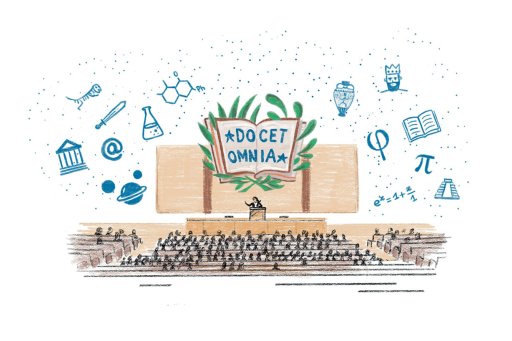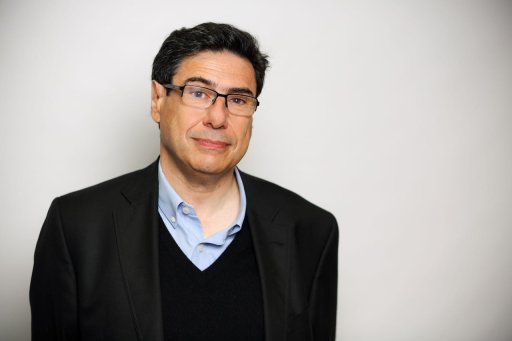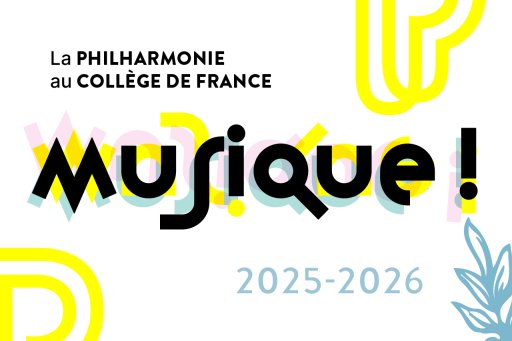Tunisian jurist and academic Professor Yadh Ben Achour was born in 1945. A former president of the High Authority for Achieving the Revolution's Objectives, he proposes a study of the "Arab Spring" in the light of its historical, theological and anthropological past. This year, he has been invited to join the Francophone Worlds Chair, created in partnership with the Agence universitaire de la francophonie.

© D.R.
Thierry Fabre: Why did you choose revolution as the theme for your lecture at the Collège de France this year?
Yadh Ben Achour: For two main reasons. The first is that this theme fascinates jurists, who find it hard to grasp this paradoxical phenomenon that breaks with an existing constitutional order, while at the same time building a new legal order. It is in the law and the lawless, destroyer and founder of the law. For this reason, some legal theorists believe that a revolution cannot be the object of legal analysis, while others, on the other hand, believe that the idea of a "legal revolution" is possible. The other reason is that I was both an actor and a direct witness of the Tunisian revolution of 2010-2011: first, I chaired the political reform commission that worked within the framework of the old 1959 Constitution; then, when the perspective of the revolution shifted in the direction of the democratic election of a constituent National Assembly, I chaired the High Instance of the Revolution. Based on this experience, I wrote my book Tunisie, une révolution en pays d'islam (Tunisia: a revolution in a land of Islam), and then decided to stay the course.
So the Tunisian revolution was a trigger?
Absolutely. In October 2018, Antoine Compagnon, having read my book Tunisie, une révolution en pays d'islam, asked me to give a lecture at the Collège de France on a topic of my choice. I was tempted by the simplest solution: to take up the big questions from my research onIslam and democracy, which I was then preparing at IMéRA, in 2018. But in the end I chose a theme outside my specialty, which turned me into an apprentice historian of revolutions, for almost three years. A new and fascinating research experience, in which the legal touch is not, however, absent!
Looking back on this historic moment in Tunisia, can we talk about a "revolution"?
This revolution fits neither into the classical framework of social revolution theory, as conceived by Martin Malia or Theda Skocpol, nor into the "end of revolutions" thesis defended by John Dunn. It could therefore be denied. I propose, as authors such as Jack Goldstone, Mathilde Larrère, Federico Tarragoni, Sami Zemni and Michel Camau have done, to move beyond this theoretical framework, based on the experience of the great European or American revolutions (North and South), and to broaden this concept to include revolutions which, either with the specific modes of the premodern era, or with those of modernity, have peppered the history of the Muslim, African or Arab world. Experiences such as the Penitents' revolt, the Aspirants' revolution, that of the Abbāside, Almoravides, Almohades, the revolution of Ousmane Dan Fodio, or those of the Caucasus, which inspired Tolstoy's novel Hadji Mourad, deserve examination. Africa has seen one of the greatest revolutions in the history of the world, that of Nelson Mandela. It is political, cultural, social and racial, yet it does not figure in the repertoire of revolutions because it does not fit into the classic criteria of revolutionary theory.

You'll be focusing on the Arab democratic revolutions. Why is that?
The central thesis I defend is that, despite the failures, difficulties and sometimes regressions of these revolutions, the message has been launched and the seed will eventually bear fruit. So I'm taking a retrospective, but also a forward-looking look at the Arab revolutions, to show that, while some were only half successful - as in Tunisia, despite what's happening now - even the experiments that missed their trajectory, and ended in the decay of both state and society, sowed a seed from which something will remain. The failure can be explained by the internationalization of conflicts and the intervention of major and regional powers. However, I believe that the "Arab Spring" of 2011, and later the Algerian Hirak, the overthrow of Omar al-Bashir in Sudan, the uprisings in Iraq and Lebanon, offer a forward-looking meaning to the Arab revolutions. Their story is not over.
There is a widely-held belief that Arab political regimes and the world of Islam are characterized by "Eastern despotism". Is Islam and democracy really compatible?
A vast question. To reason about the compatibility of Islam and democracy, I began by redefining democracy as a universal philosophical norm, not as a particular political regime, and thus beyond the factual circumstances of history. It then became clear that this norm is neither Eastern nor Western. It encompasses five fundamental principles: dignity, freedom, equality, participation and the rule of law.
In my last book, I developed at length the question of non-suffering, that existential principle of human life which is best guaranteed by the democratic norm, and which regimes such as theocracy or despotism do not guarantee. As for Islam, the answer, of course, cannot be absolute. Mine is that Islam is a Text, open to interpretation by its followers, and it's on this interpretation that everything will depend. A democratic interpretation of Islam is possible.
In a way, you're underlining a close link with a context..
Exactly. If a theocentric mindset interprets the text in a narrow, formal, legalistic way, obviously Islam and democracy cannot be compatible. On the other hand, if we adopt a teleological approach to the text, taking into account the maqâsid, the ultimate objectives of religion, then there's no problem. All we have to do is abandon certain rigidly interpreted rules. Many authors have done this, such as Mohammed Iqbal, Tahar Haddad, Mohammed Arkoun, Mahmoud Mohamed Taha, Gamal Al-Banna, Mohamed Chahrour, and I'm taking over from them; my contribution is not so much to Islam as to the definition of the democratic norm.

Your analysis shows that orientalism, which seeks to essentialize Islam, tends to be overtaken by revolutionary movements in history. And yet, isn't it the Iranian Islamic revolution that, since 1979, has set the pace for the world of Islam?
Yes, this revolution changed the geopolitics not only of the Muslim world, but of the entire world. When it broke out in 1979, it was initially a pole of attraction because it posed as a democratic revolution against dictatorship, regime corruption, torture and all the vices of a dictatorial monarchy. It's worth remembering that left-wing and far-left parties took part in its triumph in 1978 and 1979. Then Khomeini came along with his idea of velayet-e-faqih, a pure and simple invention that never existed in the Shiite tradition, to impose clerical government and transform this revolution into a ruling theocracy, despite a few elements of freedom such as Assembly elections, but always under the supervision of the clergy, the Guide and the experts who surround him. Even so, we are beginning to see signs that this system is becoming more fragile. If it holds on, it's because it's still seen as a symbol of the fight against imperialism, as demonstrated, for example, by the Iranian nuclear issue. In reality, the international policies of Western states have only served to consolidate the regime.
I would also point out that the Islamic revolution owes a great deal to the constitutional revolution of 1906, and I believe that it is preparing to go beyond itself, as Farhad Khosrokhavar's work on the new Iranian intellectuals demonstrates.
This revolution is now over forty years old... Do you think we've come out of this Islamic cycle and into revolutions that could be described as democratic?
Out of the Islamic cycle, far from it. However, there may be a convergence between what I would call the Islamization of society and democratization. This is to some extent what we're experiencing in Tunisia at the moment: a renaissance of religion, but also a very strong democratic and liberal trend, which we've been observing since the coup d'état of July 25-September 22. The Ennahda party is increasingly challenged from within, with one resignation following another. Its members are questioning this political Islamism and want to transform it into a democratic Islam. The tectonic crisis that is shaking them today may help them to reform. A growing number of them reject the idea of a political city governed by the laws of God, and refuse to accept Sharia law as the source of legislation.
With the return to power of the Taliban in Afghanistan and the coup de force of President Kaïs Saïed in Tunisia, haven't we entered a phase of democratic regression?
You know, history never unfolds in clear, black-and-white contrasts. It's more complex. Certain paths, cycles or models take a long time to die or be born. And these delayed deaths and births can coexist. This is what gives the Arab world its current appearance of a boiling kettle. Take what's happening in Kabul with the Taliban. Who knows how far it will go? It's too recent to be properly assessed. But whether it succeeds or not, we're in that segment of history where opposites coexist: on the one hand, the Taliban's seizure of power; on the other, the ever-stronger resistance of Tunisian society. This brings me back to the current situation in Tunisia. On July 25, there was a coup d'état against the constitution. Without going into the legal details, when article 80 of the Constitution, which was used that day, does not respect its formal and substantive conditions, call it a coup de force if you like, for me it's a coup against the Constitution. This was definitively confirmed by the scurrilous decree of September 22.
Is the spark of democracy born in Tunisia and other Arab countries dying out?
Not at all, the flame could be rekindled by the prolongation of this state of exception. Given the President's overly slow handling of the situation, and the absence of democratic prospects, people are beginning to realize that we're running on empty. There's a new spark, revealing the resistance of civil society. For example, on September 13, 2021, the Association for the Defense of Individual Freedoms held a press conference to denounce all the arbitrary excesses and infringements of individual and collective freedoms, such as the trials of civilians by military courts, exit bans or the problems a traveler may encounter at the airport, with questioning and detention for hours, house arrests without legal proceedings... Since then, the parties, associations and national personalities denouncing the excesses of this coup d'état have become more and more numerous. And the more time passes, the stronger this civil resistance will become to prevent the excesses. Otherwise, we'll soon have a dictatorship coupled with a counter-revolution. All the more so as we know the conservative ideas of the current president, which in no way diverge from Islamist ideology. He's a masked Islamist, as I've said and written publicly.

Interview by Thierry Fabre, founder of Rencontres d'Averroès. He is currently director of the Mediterranean program at IMéRA, the Institut méditerranéen de recherches avancées.










